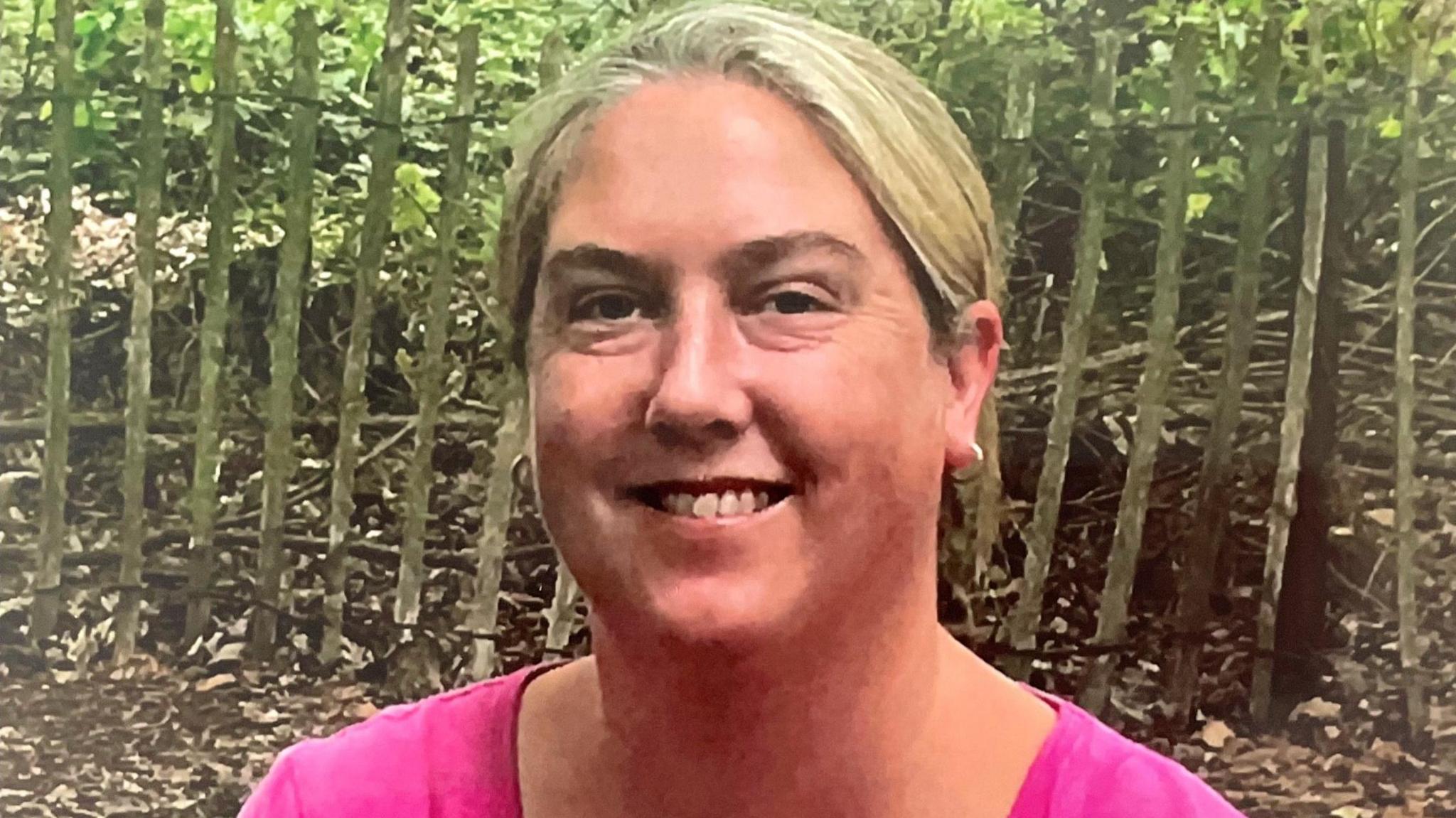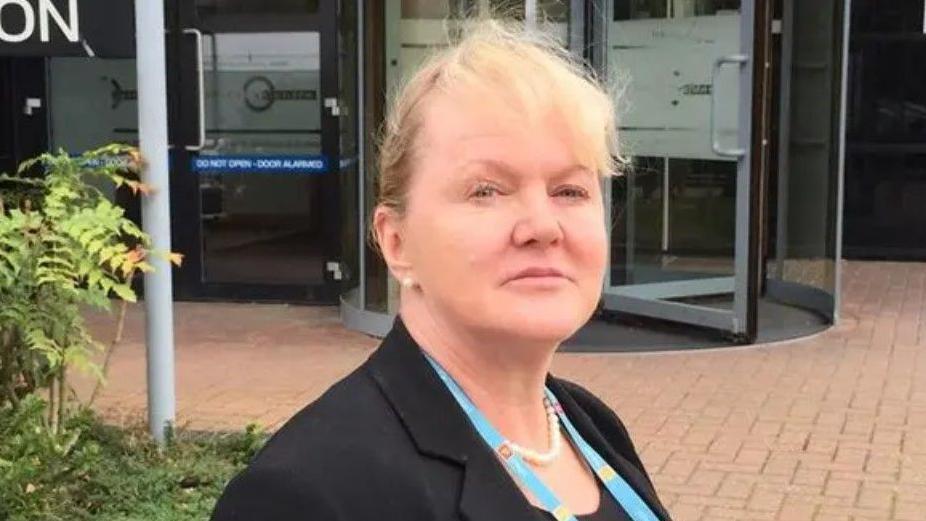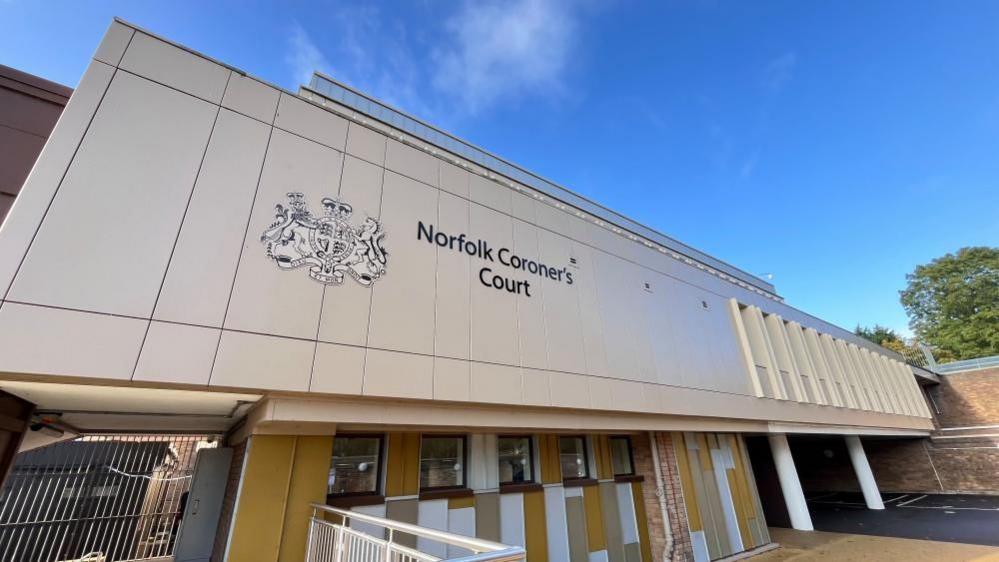Woman let down by NHS during heart attack - family

Julie Hurn, 43, had rung three times for an ambulance before she died
- Published
A man has told a coroner's inquest that his sister was "let down by the NHS" after she died from a heart attack while waiting for an ambulance.
Julie Hurn, 43, who lived near Attleborough, Norfolk, died of a myocardial infarction - a blood clot stopped her heart - on 7 July 2022.
Norfolk coroner Yvonne Blake was told Mrs Hurn made three calls to 999 after experiencing chest pains and the ambulance crew arrived more than 90 minutes after her first call. A pathologist said had she been treated more quickly she would likely have survived.
The Norfolk and Waveney Integrated Care Board said that at the time the trust was experiencing extreme pressure on emergency services.
'Pushed for treatment'
The inquest at Norfolk Coroner's Court heard that Mrs Hurn, who worked as a waste contracts manager at Norwich City Council, had been stressed as she was going through a divorce.
Her brother Gary Hambling said his sister was taking medication for high cholesterol and high blood pressure.
He said: "It seems from 2011, at the age of 32, she was complaining of heart pains and high cholesterol.
"We didn't know this and if we had we would have pushed for treatment. We would like this raised at the inquest for the GP to answer.
"This case has all the hallmarks of heart problems which should have been treated earlier. It seems to be a lazy way of treating a patient with this kind of history .
"The NHS has let Julie down. It seems for whatever reason the GP practice was reluctant to use the tools of the NHS to full extent.
"The time to get an ambulance to Julie was unacceptable and the pathologist has said that she would have had a good chance of survival if an ambulance had attended within an hour."

Norfolk area coroner Yvonne Blake read statements from medical experts at the inquest into the death of Julie Hurn
Katelyn Harper, a paramedic with East of England Ambulance NHS Trust, said she was deployed to Mrs Hurn's address at 16:54 BST and arrived at the scene at 17:11. The initial call to 999 was made at 15:26.
The inquest heard that, at the time, the East of England Ambulance NHS Trust had 18 outstanding Category 2 emergencies to attend and NHS Norfolk and Waveney Integrated Care Board was experiencing a "surge black", the most extreme pressure on emergency services.
Ms Harper said on arrival she found community first responders performing resuscitation using a defibrillator. She administered adrenalin and a mechanical resuscitation was used, but at 17:48 Mrs Hurn's death was recorded.

Julie Hurn died of a heart attack on 7 July 2022
Saul Myerson, a cardiologist at John Radcliffe Hospital, Oxford, said Mrs Hurn suffered a fatal heart attack shortly before 16:51, when the third 999 call was made.
He said had Mrs Hurn had that heart attack in a hospital or in front of paramedics, she would have had a chance of surviving.
Yet based on her medical records he did not believe there had been a need for a referral to a cardiologist because she had showed no evidence of suffering from angina.
Rajesh Logasundaram, a pathologist from Norfolk and Norwich University Hospital, said: "An early 999 response would have made a significant difference in the survival and outcome, given the age of the patient."
The inquest into Mrs Hurn's death is expected to hear evidence over four days.
Follow Norfolk news on BBC Sounds, Facebook, external, Instagram, external and X, external.